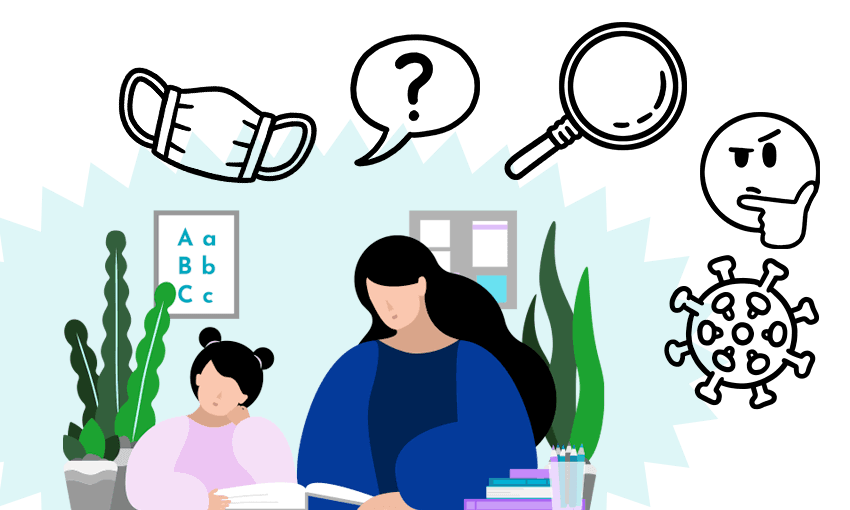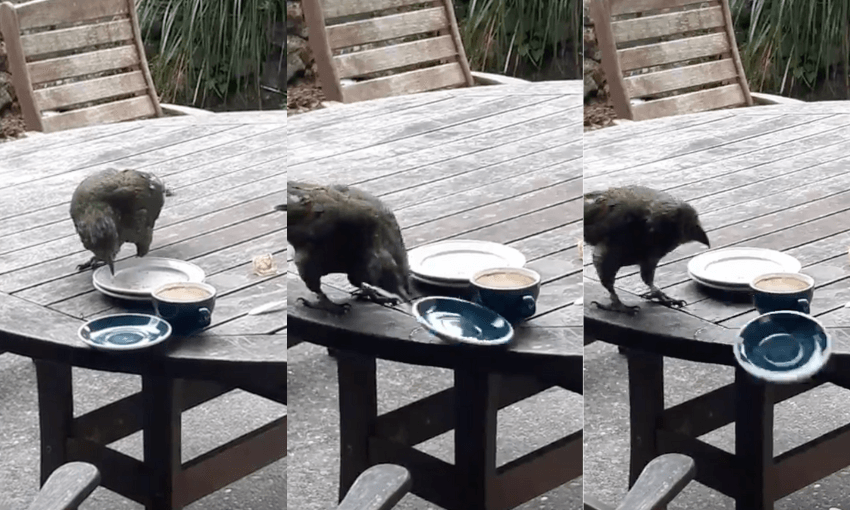Covid-19 lockdowns gave many parents their first taste of homeschooling and now, increasing numbers want to do it permanently. Emily Writes speaks to parents taking the plunge for their kids’ safety.
This post was first published on the author’s newsletter, Emily Writes Weekly.
More parents than ever are choosing homeschooling, with Ministry of Education figures showing a sharp rise in applications in the past few months as Covid-19 embeds itself in our communities.
“Since September 2021 there has been a significant increase in enquiries from parents about home education and we are currently assessing a large number of home education applications,” said the Ministry of Education’s Sean Teddy in a statement.
Parents who want to homeschool their children must apply for an exemption from enrolment at a registered school and to be approved, the ministry must be satisfied that the child will be taught at least as regularly and as well as they would be in a registered school.
According to ministry data, 9,439 children and young people are currently home educated, compared to around 780,000 enrolled in schools and kura. This is an increase of almost 900 students in under two months, with 8,552 having had an exemption from school as of December 8 last year. And the numbers are likely to keep growing, as in the past few months, applications have been about four times higher than in previous years – 867 in November, 800 in December and 735 in January 2022.
Homeschooling is a broad church and attracts everyone from parents of children with disabilities or neurodivergencies to anti-vaxxers and evangelical Christians. While there’s no way of knowing exactly why people are considering homeschooling in larger numbers, it doesn’t take an epidemiologist to figure out the global pandemic probably has something to do with it.
While an RNZ report earlier this week partly attributed the rise in interest in homeschooling to concerns about children Year 4 and above being required to wear masks, at the other end of the spectrum are parents whose children are particularly vulnerable to Covid-19.
With an immunocompromised child and omicron cases on the rise, my husband and I are among those considering our options. But the ministry is quick to point out that Covid-19 isn’t reason enough to keep your child out of school, and nor is the fact that there hasn’t yet been sufficient time for five to 11-year-olds to get their second vaccine dose.
“Getting vaccinated is a key step to gaining more protection against Covid-19, however, not currently having tamariki fully vaccinated is not a valid reason to keep them away from school,” said Teddy. “We know the physical, mental and emotional wellbeing of students in school is beneficial, so all those students that can attend should.
“The safety and wellbeing of students and staff is the top priority for every school or kura, who will have their own plan that best meets the needs of their school community at all colour settings,” he added. “Working with their parent communities, schools and kura best understand the unique needs of their students.”
But this is cold comfort for some parents of disabled children who are trying to figure out if their child will be safe. One parent who wanted to remain anonymous said she was struggling to get an answer from her child’s paediatrician.
“They’re so overloaded. I call, email, text – I can’t get specific advice about my child who has immunity issues. And my school, I don’t feel like they even register how dangerous Covid-19 is for our child.”
Kiki Van Newtown has been homeschooling her medically fragile child in Wellington for the last five years. She is hopeful the ministry will increase support for parents of children who have to be homeschooled due to their health.
“Homeschooling is really hard. If I had a choice, and it was safe for me to send my kids to school, then I probably would have taken that opportunity – because homeschooling is really difficult,” she said.
“If you’re thinking about homeschooling, you need to know you’re losing access to a lot of resources that schools have, you’re losing income, and you’re accountable for your child’s education. It’s all on you.
“There are a lot of people who are homeschooling because of disability and they are completely under-served by the homeschooling structure as it stands.”
Safety in homeschooling also isn’t guaranteed, with a growing divide in the homeschool community making socialisation challenging.
“As homeschoolers we often do activities with other homeschool families – there’s a homeschool gymnastics group and a homeschool STEM class – but if people are taking their kids out of school because they’re worried about Covid, they won’t be going to those things. We can’t go to those things with omicron around,” says Van Newtown.
“The homeschool community has gone through a challenging time with the vaccination mandate and people trying to manage that – there’s a real split between people who are informed by disability rights and wanting to keep their kids and their community safe and others who, you know, say they’re pro-choice and they’re conservative anti-vaxxers. There’s a real divide. This is the reason why a lot of people already homeschool, because they’re conservative Christians or they distrust what they perceive to be government interference, they don’t want to be around people with different views. That’s even more obvious now.”
Amanda from Wellington is considering homeschooling to keep her immunocompromised child safe. She has been frustrated by the lack of guidance and feels like she's on her own with her decision-making.
"We asked our care team if they thought it was safe to send our child to school. They said we are not alone in asking and the only advice they can give is the official Ministry of Health advice that it is safe for all children to go to school.
“I love our care team but this was pretty unhelpful. We are thinking that as soon as there are cases in our community, our whole family is locking down either with or without our care team and our school’s help."
Many families I spoke to who have disabled children were in the same boat. It has meant the last few weeks have been particularly stressful as parents try to work out whether they’ll send their kids to school.
Chloe, a mum of an immunocompromised child from Wellington, said she hopes principals understand the anxiety parents are feeling.
“I would absolutely love it if my kid’s principal could just tell me what they’re doing to keep my child safe. And if they tell me they can’t do anything – then at least I know that and can make a decision.”
Homeschooling applications aren’t automatically approved – the exemption process can be challenging and lengthy, and not all applications are successful. There is currently a backlog, and while waiting for their application to be assessed, legally all children aged over six years must be enrolled at and attending school.
Applicants must satisfy legal requirements that their child will be taught the curriculum as regularly and as well as in a registered school, said Teddy, and “some recent applications haven’t provided sufficient evidence”.
“Home education is not a short-term solution,” he said. “To home educate well, parents need to thoroughly research and plan their approach.”
Applications are assessed by regional advisers and this process can take weeks, with additional information often needing to be requested to support the application. As the ministry is currently assessing such a large number of home education applications, Teddy said “decisions are taking longer than usual”, with on average more than six weeks for processing. Most students return to school for the year this week or next, and applications received in January will still be awaiting a final decision.
For parents like Chloe, it’s an anxious time. “I don’t want to homeschool at all. But there’s nothing I won’t do to keep my child safe.”

